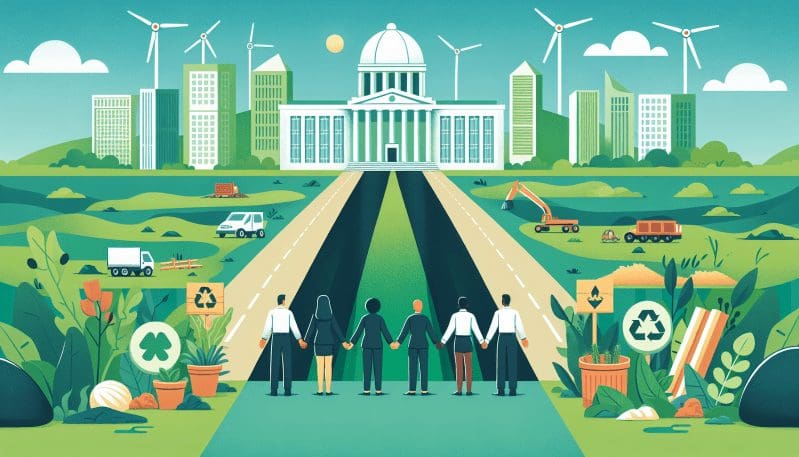In a world that is rapidly acknowledging the pressing need for sustainability, the ‘green skill gap’ has emerged as a critical barrier to progress. As stewards of public policy and regulatory frameworks, government workers lie at the heart of transformative environmental policies. However, there remains a palpable deficit in the skills and training essential for these employees to implement and adhere to burgeoning green mandates effectively. This blog delves into the crucial need for upskilling government employees in environmental policy and sustainability practices and the far-reaching implications it holds for policy efficiency and workplace dynamics.
We live in an epoch where environmental issues are not just scientific concerns but integral to legislative action and public administration. The intricacies of climate change, renewable energy, waste management, and conservation demand a workforce that is not only agile in its administrative capacity but also literate in the vernacular of environmental science and policy. Bridging the green skill gap is not an option but a necessity to ensure that public sector workers are not just spectators but active players in the march towards a greener future.
The benefits of integrating green skills into government roles are manifold. For one, it enhances the ability of employees to conceive, implement, and manage policies with a keen eye on sustainability. It also fosters better regulatory compliance and sets a benchmark for the private sector’s environmental strategies. Upskilling can also lead to greater job satisfaction, as workers feel more competent and engaged in their roles, which is crucial for the retention of talented individuals within the public sector.
However, this transition is not without its challenges. Existing government workforce development systems may not be adequately equipped for such specialized training, and the fast-paced evolution of environmental innovation constantly outpaces curriculums. Moreover, budget constraints and bureaucratic inertia can impede the adoption of comprehensive green training programs.
Despite these obstacles, there have been promising case studies showcasing the positive outcomes of green upskilling initiatives. Certain jurisdictions have witnessed enhanced policy outcomes, a surge in inter-departmental collaboration, and a clear alignment of government operations with sustainability goals as a result of targeted upskilling programs.
Looking forward, it is imperative that government bodies adopt a proactive stance towards continuous learning and development. Given the dynamic nature of environmental challenges, training programs must be agile, comprehensive, and, most importantly, embedded within the culture of public work. Policymakers and government HR departments need to work in unison to project future needs and devise training modules that are both scalable and impactful.
In conclusion, equipping government workers with green skills is far from a mere enhancement of their professional repertoire. It is a critical investment in the efficacy of public service and in the health of our planet. As environmental policy evolves, so too must our workforce. By closing the green skill gap today, we prepare our government workers not just for the tasks at hand, but for the environmental stewardship that tomorrow will demand.
By embracing the task of upskilling with vigor and foresight, we can transform governmental workforces into robust, future-ready entities capable of leading the charge in our collective pursuit of sustainability. The path to a greener future is paved with education, innovation, and an unwavering commitment to progress – let us walk it together.




























